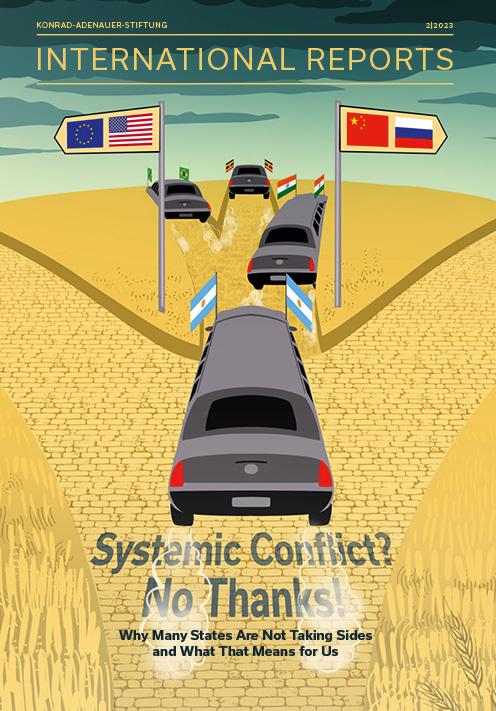The notion of a “systemic conflict” has increasingly found its way into our discussions on foreign policy in recent years. Russia’s war against Ukraine, mounting tensions between the US and China: all these phenomena are interpreted within the framework of a clash between liberal-democratic systems and authoritarian ones. And although this interpretation might not be entirely misled, we have to face this fact: the overwhelming majority of states worldwide does not show even the slightest inclination to fit into a bloc logic of any kind or to make abstract normative issues the guiding principle of their foreign policy. To know why pragmatism should be our answer to this finding, read the new issue of International Reports!
View table of contentsAbout this series
International Reports (IR) is the Konrad-Adenauer-Stiftung's periodical on international politics. It offers political analyses by our experts in Berlin and from more than 100 offices across all regions of the world. Contributions by named authors do not necessarily reflect the opinions of the editorial team.
Order details
Our periodical on international politics is published four times a year. We provide you with background information on what is happening in the world – free of charge. Use our registration form and with just a few clicks you can read the digital version of our political journal or order the print version in German or English.
Editor
Dr. Gerhard Wahlers
ISBN
0177-7521
Benjamin Gaul

Head of the Department International Reports and Communication






